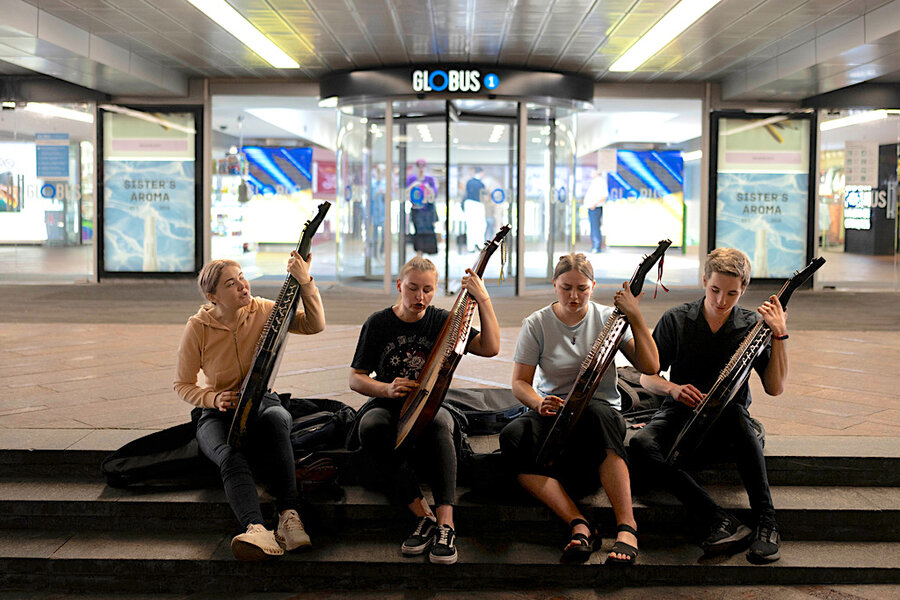Songs of beauty amid war
Loading...
The acoustics of warfare are as varied as the places where war is now being waged throughout the world – in deserts and forests, farmlands and city streets. Yet across these landscapes, there is one persistent and common sound.
Every day in Gaza, a small troupe of musicians moves from one makeshift camp of displaced people to another, gathering children within sheltering pockets of songs and poetry. “We use whatever means we can to remove the children from the war,” Ruaa Hassuna told Turkey’s Hürriyet Daily News. Her oud and voice, she says, drowns out the hum of drones overhead.
Similar stories emerge from wherever war is now being waged, from Ukraine to Sudan. They reflect a deep desire for a degree of dominion over conflict and repression, a reclaiming of agency through beauty.
Through music, Russian artists have risked arrest to express anti-war themes of empathy and remorse. For Ukrainians, music has offered a way to push back against Russian President Vladimir Putin’s claim that they have no distinct cultural or national identity. In Kyiv, subway stations have become subterranean concert halls where musicians in tuxedos perform Ukrainian folk songs.
“Alongside the many indelible images from the war in Ukraine, there have also been some powerful stories with a musical theme,” writes Janine Natalya Clark, a professor of gender, transitional justice, and international law at the University of Birmingham in England. They show that music “can be viewed as a creative expression of resilience and, relatedly, resistance.”
Musicians in Sudan have responded to a fierce civil war with new songs of peace that capture the “unyielding hospitality” of Sudanese culture, as the local rapper Bas told NPR. In the storied city of Timbuktu in Mali, where Islamist extremists restrict the movement of people and goods through intimidation, residents set aside their fears recently to hold a festival. Merchants shared ideas to promote female entrepreneurship during the day. In the evening, musicians played.
“It’s needed more than ever, because it’s something to help lift people’s spirits and it brings a lot of support to the local economy,” Salaha Maiga, an organizer, told the BBC this week.
Perhaps the most powerful musical instrument rising above the din is the unaccompanied human voice. Women in Iran who had been imprisoned for political reasons recall Narges Mohammadi – the winner of this year’s Nobel Peace Prize – still protesting repression by singing Persian classical music deep within Tehran’s infamous Evin Prison. During the early months of the war in Ukraine, a solo voice hushed a crowded bomb shelter. Amelia Anisovych, a 7-year-old girl, sang “Let It Go” from the Disney film “Frozen.” A video of her performance traveled around the globe.
“Without music ... how are we then supposed to reconcile?” Fatoumata Diawara, a Malian musician, asked in an interview with Bloomberg. Around the world, societies in war are writing songbooks of resilience, disarming hatred with chorales of innocence and peace.





